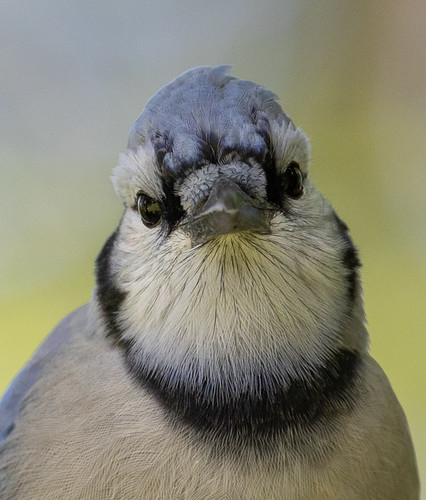Every year at tax time, I put the maximum amount of money that I can into an I.R.A., saving for retirement. I’ve never been much of a capitalist, so I don’t put any of it in stocks—just a credit union savings account. I’m half a year from turning 70, and I haven’t socked away anywhere near as much money as “wealth advisors” say I should have, but I’m not worried—I’ve never aspired to be wealthy, at least not as far as money goes. Having a wonderful husband and children and now even a grandchild, a robin singing away from well before dawn until sunset, and chickadees nesting in my backyard where I can follow them is plenty enough wealth for me. Between the two of us, Russ and I have socked away enough to enjoy retirement, whenever it might be that we stop working.
I can sort of understand why savings should grow faster than what savings accounts pay on them nowadays—as a young adult working my way through college as a bank teller at a time when the most paltry passbook savings account paid 4 or 5% interest, compounded daily, and some regular savings accounts paid up to 6 ½ percent interest, I’m naturally of the mindset that regular people should be able to earn decent interest on savings, but even at the paltry rates savings accounts now give, I’m getting way, way more return on my investment than we as a nation are getting on the natural resources we should be investing in for the future—my savings are at least holding their own, but every year we lose more and more natural habitat as the quality of our air, water, and soil are slowly degraded and the important native insects that fuel so much wildlife dwindle. According to a recent New York Times article, more than four million miles of roads and highways crisscross the nation, and in the Lower 48, the farthest one can get from a road is about 20 miles now. It’s just about impossible to create wilderness after land has been developed. Less than 5 percent of America’s landmass was ever set aside as wilderness and almost half of that is in Alaska. What sensible person would settle for saving just 2.7 percent of their total revenue at 0 percent interest with little or no chance of increasing it down the line? And even protected wilderness loses value when we build highways right along the edges of it, and when air and water pollution generated elsewhere seep in.
The time to invest in natural habitat is hardly over, just like I’ll still be able to put away savings after I hit 70, but we’ve destroyed vast numbers of vulnerable insect populations, in turn devastating populations of Purple Martins, whip-poor-wills, and nighthawks; allowed so much surface and groundwater to be contaminated with all kinds of fertilizers, pesticides, and other chemicals that damage whole ecosystems; and fragmented so much contiguous habitat for yet more development. We simply lack the collective mindset that could see how badly we’re squandering our inheritance. The reason we call property “real” estate is that land is genuinely real and lasting in a way that money is not, as our planet is real and lasting in a way that no monetary unit is.
It’s a joke when retirees put a bumper sticker on their airstream saying “This is how we’re spending our children’s inheritance.” Like Acorn Woodpeckers, which sock away acorns in “granaries” they construct in tree trunks or other structures, we humans do our best to amass long-term savings which our children will inherit. And like Acorn Woodpeckers, we try to ensure that our children have the same opportunities to amass a good granary themselves. When they reach a certain age, woodpeckers don’t suddenly take to the road and forget all about finding and storing acorns. Retirement is a human construct, and if our human obligation isn’t to hand over everything we’ve earned to our children, it is to leave them in a world where they can amass on their own at least as much as we did.
Blue Jays cache away their acorns in a different way than Acorn Woodpeckers—they hide each one in the ground under a leaf, ensuring that if they don’t return to eat it, it’ll sprout into a new oak tree, growing more acorns for future generations of Blue Jays—talk about high-yield savings! We’re the species that includes rocket scientists, but for all our brains, we’ve never understood the difference between using natural resources and using them up. Fifty-one years after that first Earth Day, isn’t it time we figured that out?




